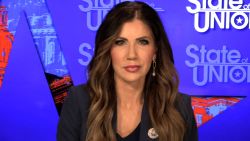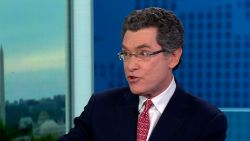Sen. Joe Manchin, the Democrats’ most pivotal swing vote, expressed his most serious concerns yet about a key element in their party’s $3.5 trillion sweeping economic plan: Provisions dealing with climate change that have been sought by progressives.
Manchin, who hails from coal-producing West Virginia, told CNN that he’s “very, very disturbed” by provisions he believes would eliminate fossil fuels – a warning sign for Democrats who need all 50 members of their caucus to sign off on the plan in order to get it through the Senate. But the climate provisions are key to getting support from liberals, particularly in the House.
And how Democratic leaders keep both factions of their caucus will be key to determining if they can approve much of President Joe Biden’s domestic agenda by the fall.
“I know they have the climate portion in here, and I’m concerned about that,” Manchin said moments after Biden met with Senate Democrats in the Capitol on Wednesday.
“Because if they’re eliminating fossils, and I’m finding out there’s a lot of language in places they’re eliminating fossils, which is very, very disturbing, because if you’re sticking your head in the sand, and saying that fossil (fuel) has to be eliminated in America, and they want to get rid of it, and thinking that’s going to clean up the global climate, it won’t clean it up all. If anything, it would be worse.”
Democrats still need to draft their bill to expand the social safety net, which would go through the budget reconciliation process by September and cannot be filibustered, meaning it can advance with just 51 votes rather than 60.
Separately, Manchin is central to an effort to approve nearly $600 billion in new spending on a narrower bill on infrastructure. But that infrastructure plan is going through the typical legislative process, which would need the support of at least 10 Republicans to overcome any filibuster attempt.
The dual-track approach will only succeed if Senate Democrats unify behind it. But it’s clear that party leaders have their work cut out for them to keep their caucus in line.
“That’s a big amount,” said Sen. Jon Tester, a Montana Democrat, when asked about the $3.5 trillion price tag. “Yeah, I think we just got to figure out how it’s being spent, and how it’s being applied, figure out how it’s going to be paid for, and then make the assessment.”
In the proposal, Democrats propose a wide-range of measures dealing with child care, immigration, Medicare expansion and corporate tax hikes. But Manchin seemed generally open to most of the ideas, including the price tag, though the climate provisions sparked his ire.
In the plan, Democrats want to meet Biden’s climate change goals of “80% clean electricity and 50% economy-wide carbon emissions by 2030,” according to a senior Democratic aide. The measure would fund a clean energy standard, vehicle tax incentives and electrification of buildings – among other matters. The measure also would propose “methane reduction and polluter import fees” to reduce emissions, the aide said.
Where things stand
Manchin wouldn’t say if the climate provisions would be a dealbreaker for him, but said: “I think reasonable people, if you show them the facts, and you agree that these are the facts, you’ll make the adjustments accordingly. And that’s what I’m hopeful for. … I’m going to do everything I can to make sure the United States of America remains energy independent.”
Manchin said he did not speak up when Biden was in attendance at Wednesday’s lunch. But after Biden left, Manchin relayed his concerns to his colleagues.
Asked if Biden singled him out, Manchin said, “He talked a little bit. Said ‘Joe this, and Joe that.’ … A lot of Joe’s back and forth. No, no, no, we have a great relationship and we’ll talk in detail.”
Manchin said Biden spoke about a priority in his state: making sure “the abandoned mine lands are going to get cleaned up. People are going to get good jobs. We’re going to be plugging a lot of orphan wells. Which are good jobs.”
Yet there are other potential landmines ahead, as well. Manchin also said that he’s “concerned” about more spending driving up inflation.
“I’m concerned,” Manchin said. “I’m going to talk to some economists. I’m going to dig deep into that. People in West Virginia, I spoke about this right now, are paying much higher gas prices; they’re paying food prices. … It’s not just a threat; it’s happening.”
CNN’s Lauren Fox, Ted Barrett and Morgan Rimmer contributed to this report.



















